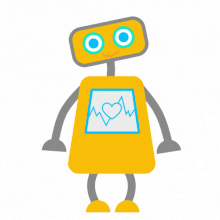 Working 24 hours a day, 365 days a year across more than 130 countries, Woebot is undoubtedly a busy therapeutic chatbot. The good news is that Woebot recently secured $8 million to gain access to mental health care worldwide.
Working 24 hours a day, 365 days a year across more than 130 countries, Woebot is undoubtedly a busy therapeutic chatbot. The good news is that Woebot recently secured $8 million to gain access to mental health care worldwide.
The world’s first mental health chatbot, Woebot was founded by Dr. Alison Darcey in 2017 for young adults in college and graduate school. Designed to use natural language processing, therapeutic expertise, excellent writing, Woebot comes with “occasional dorky joke”. The therapeutic framework is said, “to create the experience of a therapeutic conversation for all of the people that use him.”
With proven results, Woebot has gained traction and now receives two million messages per week, recording a 50 percent month-over-month growth in the last quarter. A randomized controlled trial at Stanford University showed that the college students aged 18–28 years, who chatted with the therapeutic Woebot, significantly reduced the symptoms of depression in 2 weeks.
Woebot arrives at a time when the burden of mental health problems has doubled, especially over the past decade. According to World Health Organization (WHO
), depression is a leading cause of mental disorder across the world, affecting over 300 million each year globally. With a growing need for additional assistance, Woebot aims to create an environment that is more conversational and less automated. The chatbot relies on scientifically validated approaches to mental health, provides insights and teaches stuff through cognitive-behavioral therapy.
What is Cognitive Behavioral Therapy?
Cognitive behavioral therapy or CBT is a talk therapy that is highly structured and practical. It is limited to the number of sessions with either a psychotherapist or therapist and is considered to be the most rigorously studied and most effective treatment for mental health problems. Woebot tracks moods through graphs and displays the progress every week. It also looks for patterns that may be out of human scope and gradually learns more every day through its daily interactions.
For the treatment of anxiety and depression, Internet-delivered CBT is shown to be as effective as therapist delivered CBT for both anxiety and depression. This would mean millions could benefit from internet-based assistance. Woebot Labs Inc. recently launched the iOS app earlier this year, which is ahead of its app. release for Android later in March.
 Woebot also provides assistance on Facebook Messenger. Conversations between Woebot and the user do not leave any public impression on the user’s Facebook profile or the news feed and are
Woebot also provides assistance on Facebook Messenger. Conversations between Woebot and the user do not leave any public impression on the user’s Facebook profile or the news feed and are
private. With a launch on Facebook, Woebot automatically has a presence on the world’s largest active social media platform with an audience of 2.2 billion.
With $8 million funding on March 1, 2018, from leading venture capital firm New Enterprise Associates (NEA) with participation from Andrew Ng’s newly launched AI Fund, Woebot Labs, Inc. can expand its delivery of high-quality mental health care worldwide and develop the AI technology powering Woebot.
According to Woebot CEO and Founder, Dr. Alison Darcy,
Our funding marks a new chapter for Woebot as we work to constantly improve the overall experience for our users. Considering the immense human and economic costs associated with mental health problems, it’s crucial that we meet this challenge head on. Backing from NEA and the AI Fund will allow us to grow our team and help Woebot deliver great coaching, 24 hours a day.
Bottom Line
Woebot acknowledges that there will always be a need for a human connection from therapists and it does not intend to replace the human connection. But given the fact that there are millions of people around the world that will never see a therapist, chatbots like Woebot could be of immense help. Through such systems, immediate help and low-intensity options can be provided 24*7 and this can free up “precious human resources for those dealing with things that need human intervention.
To read original blog, click here
